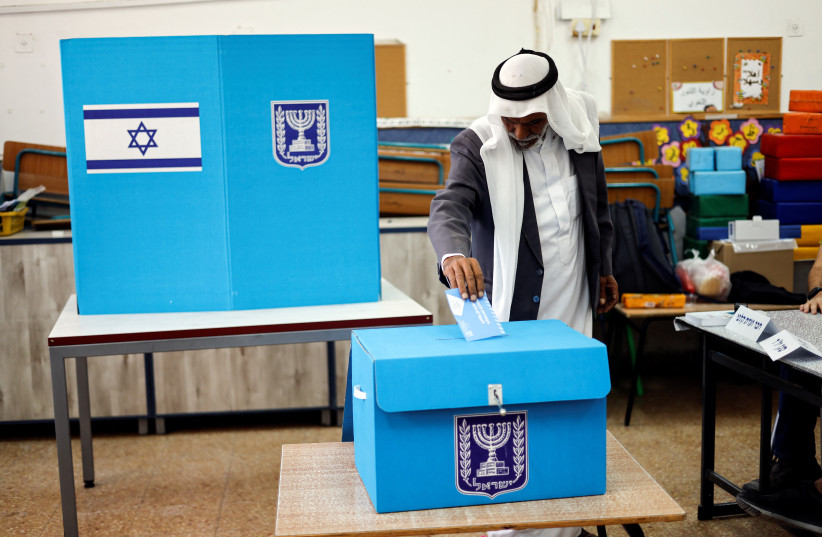Election Day is nearly over, as polls opened at 7:00 a.m. and will close at 10:00 p.m.
What do we know so far?
The Central Election Committee announced that voting percentages as of 8:00 p.m. were 66.3%, on pace to be the highest voting percentage since 1999. A high voting percentage pushes up the number of votes needed to pass the electoral threshold, which is 3.25% of the general vote.
This would endanger the smaller parties that are near the threshold - Habayit Hayehudi (Jewish Home) from the pro-Netanyahu bloc, and Meretz, Labor, Balad, Hadash-Ta'al and Ra'am from the anti-Netanyahu one.

The voting percentage in the Israeli-Arab sector in the morning was reportedly lagging, but it picked up throughout the day. According to Hebrew University's aChord Center, a social-psychology research center, the Arab vote as of 8:00 p.m. was already 44%. This nearly matches the voter turnout in the previous election, which was 44.6%.
A rise in the Arab vote would proportionally benefit the Arab parties more than the rise in the general vote, since 80% of Israel's Arabs traditionally vote for one of the three Arab parties, whereas the Jewish vote is spread out further among parties.
Some politicians on the Right used this as a scare tactic. Religious Zionist Party (RZP) leader MK Bezalel Smotrich claimed in a video that the Arab vote was a full 10% higher than the last election, due to "investment of millions of dollars by the Left and international 'elements.'"
